With every sip of the most popular hot drink in the world, Tepito Coffee is building cultural bridges for Latinos living on both sides of the international border which separates Mexico and the United States. For Mike de la Rocha and Richard Cabral, owners and founders of Tepito Coffee, coffee is at the forefront in a fight to empower their communities.
“I sat in a prison cell for a long time. I appreciate the little things,” Cabral said, referring to his daily cup of coffee.
Cabral is an Emmy-nominated actor, producer and writer. He is best known for his roles on the show “Mayans M.C.” (FX Channel, now on HULU) and the ABC television series “American Crime.” De la Rocha is a community organizer, musician and entrepreneur.
Their involvement in their community and their spirituality and ceremonial practices are not the only things they both have in common. Both of them also had a history of incarceration.

Courtesy, Tepito Coffee
Cabral was born in East Los Angeles and was imprisoned at the age of 13. He did not make it out of the system until he was 25. “At 20 years old, I fought a life sentence. I shot someone in East LA and I was facing 30 years to life,“ Cabral said. “Today, I’ve been out of prison for 15 years and I’ve been a working actor for 12 years.”
De la Rocha was born in Oxnard, CA, raised in Ventura County and moved to LA when he was 17. De la Rocha said he is one of the few people on his mom’s side of the family that has never served time in prison. “I have seen the destructiveness of mass incarceration and I have spent the last 20 years organizing and doing advocacy work trying to build a better world than we have now,“ he said.
De la Rocha and Cabral founded Tepito Coffee in 2020 with three main goals and aspirations: to give back to the communities that were dear to them, disrupt the coffee industry which exploits farmers of color across the globe, and help connect Mexicans and Latinos beyond borders. “For us, coffee just happens to be the vehicle to help our community,” Cabral said.
Tepito Coffee is produced by their partners, Caffe Pecora 19º09 a family-owned growing and roasting business located in Boca del Monte, a small rural town located in the state of Veracruz, México.
De la Rocha and Cabral work closely with Carlos Avendaño Mendoza, Caffe Pecora 19º09 co-founder. “He’s one of the most talented coffee growers in Mexico. The practices that he’s using are land-based practices that his ancestors have used for centuries,“ De la Rocha said.
“We feel so lucky to work with him and that his values, like the deep care for the land, align with ours.”

Both founders said they visited Caffe Pecora’s farms to learn about the coffee growing process and what goes on behind the scenes before being able to sip on a hot cup of morning coffee. They speak with the farmers regularly and also travel to México to not only ensure great production but to also grow a deeper, more meaningful connection with the land and the people.
For both founders, one of the biggest reasons to launch Tepito Coffee was their desire to build a company that respected and intentionally valued the work of Mexican farmers in all aspects of the business. They want to disrupt the exploitation of people of color that has historically surfaced time and time again in the coffee industry. Exploitation like the one that came to light in a 2020 investigation that revealed that a farm that supplied Starbucks coffee beans had children under 13 years old working 40 hours a week in grueling conditions. These children were picking coffee and earning about $5 a day. “Most times the farmers who take on the hardest part of the job, are getting paid the least amount of money and I don’t think that’s fair,” Cabral said. “Why would you not honor that work?“
De la Rocha is a firm believer that Tepitos Coffee’s success depends on the farmer’s success. “We are reclaiming our sense of cultural pride and our own sense of production. Our mere existence is a disruption to the system that exploits us,“ he said. “When people support Tepitos Coffee they are also supporting farmers in a dignified way.”
The U.S. top coffee suppliers include Brazil (30%), Colombia (19%, Vietnam (10%), and Honduras (7 %), according to a publication released in June 2022 by the U.S Department of Agriculture. Three of the four top coffee suppliers are from South and Central America. For de la Rocha and Cabral these statistics do not reflect the representation that people of color deserve in the coffee business.”Some of the greatest coffee comes from Central America, and South America and in my opinion, Mexico and many coffee companies operating in the U.S. get their coffee from these places, yet those countries never get the recognition they deserve,” Cabral said. “That makes no sense to me.”
Cabral said he gets sad and upset when he goes to coffee festivals and there are so many companies that have coffee from Mexico or Central America, but the faces or representatives of the companies are not Latinos or people of color. “I saw that more in areas that were being heavily gentrified in LA like Silverlake or Boyle Heights,” he said. “All these coffee companies are coming in but there are no Mexican or Latino coffee owners. We want people to see us and know that we are here and that it is possible.”
In a world, where according to de la Rocha and Cabral, the coffee market is controlled by non-Latinos or non-Black people, they wanted to create a business where Latinos felt seen and represented. “Our customers are primarily Latinx people living in the Southwest.
“As a Latino-owned and operated company, we intentionally chose to focus on the Latino community because we wanted to create an inspiring and purpose-driven brand for us and by us,” de la Rocha said.

Following one of their aspirations to give back to the community, Tepito Coffee also collaborates with Homeboy Industries, the largest gang rehabilitation and prison re-entry program/nonprofit in the world, located in LA.
Homeboy Industries provides pathways in education, employment, and empowerment for formerly incarcerated individuals. Cabral was part of Homeboy Industries after getting out of prison, where he was a baker before he began acting. ”It will always be a special place to me, a space to find yourself a space of non-judgment,” he said.
Tepito Coffee partners with Homeboy Industries for its staffing requirements. They have hired and will continue to hire formerly incarcerated individuals as part of Homeboy Industries. “Tepito is founded by formerly incarcerated people. Tepito hires formerly incarcerated people and Tepito wants to support those people. We are meddling in what is possible,” de la Rocha said.
Tepito Coffee currently has a coffee shop inside Vroman’s Bookstore, California’s largest and oldest independent bookstore, located in Pasadena, and hopes to open more shops soon. “We care about what we do, so when people taste Tepitos Coffee, they are tasting love,” de la Rocha said. If you would like to learn more about Tepito Coffee or order one of their three coffee products, you can visit their website.

Courtesy, Tepito Coffee

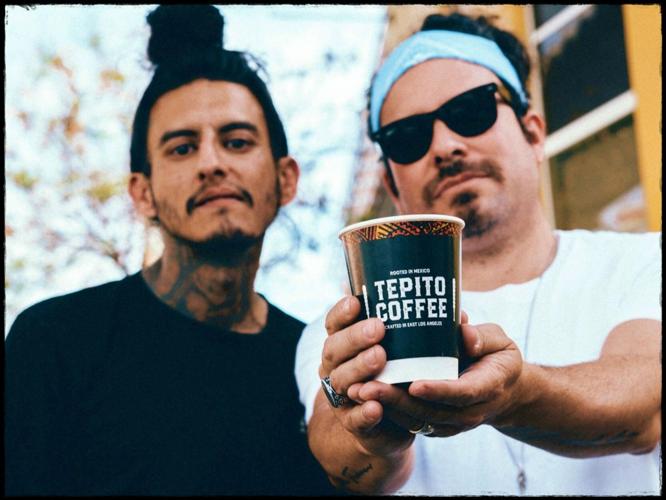
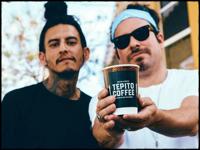



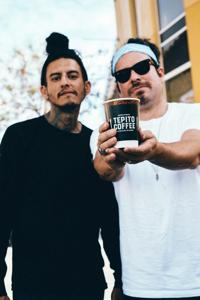



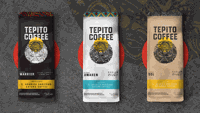
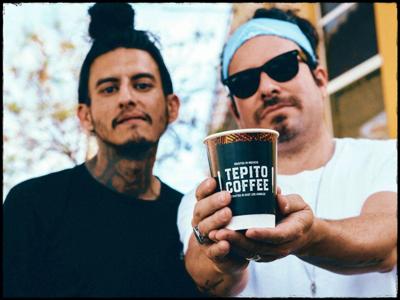

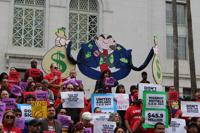






(0) comments
Welcome to the discussion.
Log In
Keep it Clean. Please avoid obscene, vulgar, lewd, racist or sexually-oriented language.
PLEASE TURN OFF YOUR CAPS LOCK.
Don't Threaten. Threats of harming another person will not be tolerated.
Be Truthful. Don't knowingly lie about anyone or anything.
Be Nice. No racism, sexism or any sort of -ism that is degrading to another person.
Be Proactive. Use the 'Report' link on each comment to let us know of abusive posts.
Share with Us. We'd love to hear eyewitness accounts, the history behind an article.